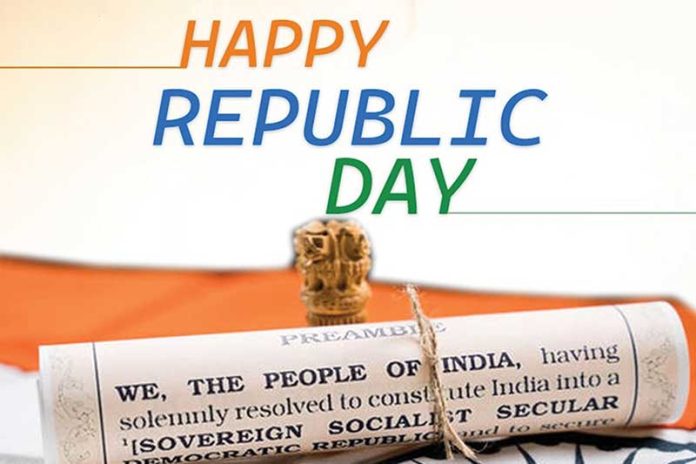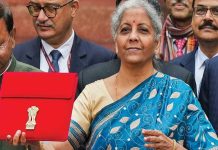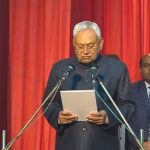India’s democratic identity is based on the idea of a Republic Nation, which emphasizes democratic governance, equality, and secularism. India’s political environment has changed significantly over the past ten years as a result of the BJP and its anti-republican policies. As India commemorates its 75th Republic Day today, it’s a good time to evaluate how the country’s republican values have changed over the previous ten years.
Understanding Republic Nation:
A Republic Nation is defined by a form of government in which the people hold the ultimate authority and an elected leader, not an inherited monarch, serves as the head of state. The rule of law, personal liberty, social fairness, and the idea that all people are created equal and subject to the same legal protections regardless of their origins or religious views are the core principles of republican country. Secularism, which keeps religion and the state apart, is an essential aspect of Republic nature, promoting a peaceful coexistence among various groups. The BJP has undermined these fundamentals of the Indian Republic during the past ten years.
Assessing the Impact of BJP Governance:
Erosion of Secular Values, Communal Polarization, and Tensions:
The destruction of secular ideals, that serve as a foundation of India’s diverse culture, is one of the major highlights of the BJP’s rule. The secular fabric that served as the foundation of the Indian Republic from its beginning has been harmed by the BJP’s affiliation with Hindutva ideology. Prime Minister Modi led BJP’s governance has also witnessed incidents of intercommunal strife, which has harmed the harmony of society. Targeting social and religious groups with its divisive politics, the BJP has created a climate of mistrust that threatens the peaceful coexistence that the Indian Republic aspires to establish.
Challenges to Freedom of Expression and Questionable Democratic Practices:
The democratic spirit of the Republic, which encourages differing ideas and open conversation, was threatened under the BJP’s rule as the last ten years have witnessed an increase in threats to freedom of speech, including cases of censorship, attacks on journalists, and silencing of dissident voices. The accusations of meddling and attempts to weaken democratic checks and balances have also raised doubt on the viability of India’s democratic system, putting confidence on the ability of democratic institutions to carry out their duties.
Economic Challenges and Unemployment:
The status of the economy has been one of the main issues throughout the BJP’s last ten-year term. Enterprises, employment generation, and the country’s general economic health have all suffered as a result of the BJP’s economic policies. Economic development continues to be challenging even with the introduction of reforms like the Goods and Services Tax and demonetization, while the informal sector has been worst hit by unexpected policy changes. When Prime Minister Modi took office in 2014, the country’s unemployment rate was 5.4%; by 2022, it had jumped to 8.2%.
National Inclusivity, Handling of Social Issues, and Unrest:
A Republic Nation, which historically cherishes its complex tapestry of cultures and customs, has a diversified ethos, and policies and narratives that stress a unique cultural perspective contradict this pluralism. India’s reputation of unity and diversity has been damaged as a result of the BJP’s emphasis on Hindutva culture as a national identity. India’s Republic system also pushes the government to take a fair and inclusive stance while addressing social concerns. A lack of a strong support system, insufficient infrastructure, and shifting crop prices are some of the causes of agrarian distress that have sparked farmer demonstrations throughout the nation. Tensions were further escalated by the controversial farm bills that the BJP administration imposed, leading to large-scale protests and calls for policy revision. The way in which governments handled farmer demonstrations violently also shows how they were failed to uphold republican values in light of public concerns.
Let’s aim for a more inclusive and equitable Republic India:
Over the past ten years, India has seen a complicated interaction between political ideology, governance, and India’s republican heritage. In order to guarantee the continuation of the Republic nature that the Indian Constitution’s creators intended, it is necessary that India advance toward a political climate that preserves democracy, secularism, and inclusion. On this 75th Republic Day, if we look at the past ten years of BJP leadership under Prime Minister Modi, the majority of BJP efforts attempted to undermine the fundamental principles of the Indian Republic and succeeded in doing so. As responsible citizens, we must participate in informative debates, demand transparency from the government, and support laws that really help to maintain and advance the Indian Republic. Let’s aim for a more inclusive and equitable Republic India by electing truly patriotic individuals from the Congress Party in the Lok Sabha in 2024.










